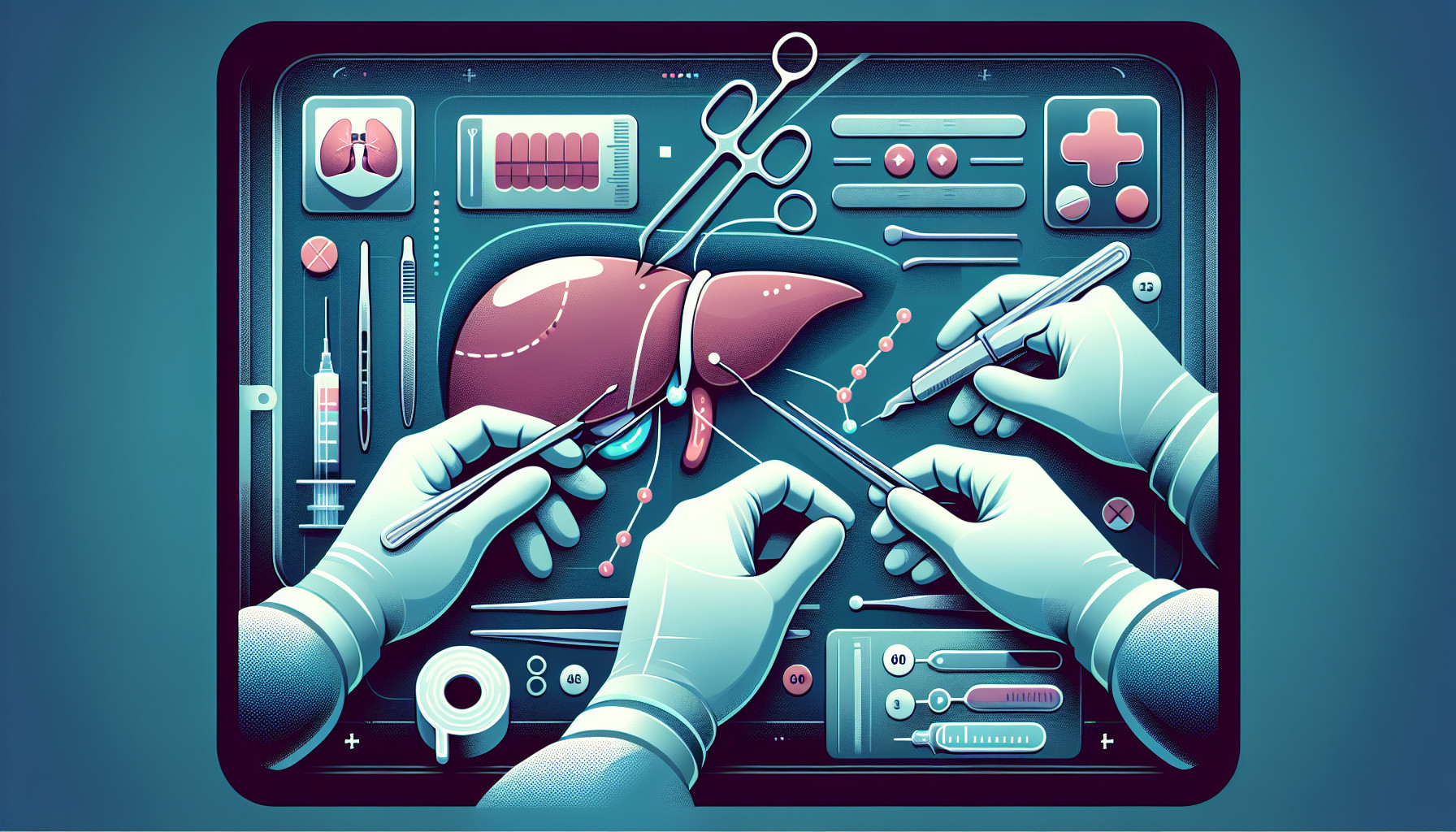Our Summary
Autoimmune hepatitis (AIH) is a rare, long-term liver disease that is usually managed with steroids and drugs that suppress the immune system. Monitoring this disease often involves a liver biopsy, which is an invasive and costly technique that carries some risks. This study looked at the potential of using a safer, non-invasive method called multiparametric magnetic resonance (mpMR) to detect and monitor the disease instead. The researchers calculated the medical test costs associated with monitoring 100 patients over five years and found that using mpMR could lead to significant cost savings. For example, replacing an annual liver biopsy with an mpMR scan for patients with moderate to severe AIH could save at least £232,333 per 100 patients. The study concluded that integrating mpMR scans into the management of AIH could lead to cost savings, a better patient experience, and improved patient outcomes.
FAQs
- What is autoimmune hepatitis and how is it usually managed?
- What is the potential benefit of using multiparametric magnetic resonance (mpMR) to monitor autoimmune hepatitis?
- How much cost savings could be achieved by replacing an annual liver biopsy with an mpMR scan for patients with moderate to severe AIH?
Doctor’s Tip
A doctor may advise a patient undergoing a liver biopsy to avoid taking blood-thinning medications, such as aspirin or ibuprofen, in the days leading up to the procedure to reduce the risk of bleeding. They may also recommend fasting for a certain period of time before the biopsy to ensure accurate results. Additionally, the doctor may explain the potential risks and benefits of the procedure, as well as the importance of following post-biopsy care instructions to prevent complications.
Suitable For
Patients with chronic liver disease, liver cirrhosis, hepatitis B or C, liver cancer, fatty liver disease, unexplained liver abnormalities, or suspected autoimmune liver disease are typically recommended for liver biopsy.
Timeline
Before liver biopsy: The patient may be experiencing symptoms of AIH such as fatigue, abdominal pain, jaundice, and weight loss. The patient’s healthcare provider may recommend a liver biopsy to assess the extent of liver damage and monitor the progression of the disease.
Day of liver biopsy: The patient will be instructed to fast for several hours before the procedure. The patient will be given local anesthesia to numb the area where the biopsy needle will be inserted. The biopsy will typically take about 30 minutes to complete.
After liver biopsy: The patient may experience some pain or discomfort at the biopsy site for a few days. The patient will be instructed to avoid strenuous activities for a few days and to avoid taking certain medications that can increase the risk of bleeding. The patient will have a follow-up appointment with their healthcare provider to discuss the results of the biopsy and determine the next steps in their treatment plan.
Incorporating mpMR scans into monitoring: Instead of undergoing annual liver biopsies, patients with AIH could undergo mpMR scans, which are non-invasive and safer. These scans can provide detailed information about the liver without the need for a biopsy. By using mpMR scans, healthcare providers can monitor the progression of AIH more effectively and potentially detect any changes in the disease earlier. This approach can lead to cost savings, a better patient experience, and improved patient outcomes.
What to Ask Your Doctor
Some questions a patient should ask their doctor about liver biopsy in the context of autoimmune hepatitis include:
- What is the purpose of a liver biopsy in diagnosing and monitoring autoimmune hepatitis?
- What are the risks and potential complications associated with undergoing a liver biopsy?
- Are there alternative, non-invasive methods, such as multiparametric magnetic resonance (mpMR), that can be used instead of a liver biopsy?
- How often will I need to undergo a liver biopsy for monitoring my autoimmune hepatitis?
- What are the costs associated with undergoing a liver biopsy compared to using mpMR scans?
- Are there any specific factors or criteria that determine whether a liver biopsy or mpMR scan is more appropriate for monitoring my condition?
- What are the potential benefits of using mpMR scans for monitoring autoimmune hepatitis compared to traditional liver biopsies?
- How will the results of a liver biopsy or mpMR scan impact my treatment plan for autoimmune hepatitis?
- What are the limitations of using mpMR scans compared to liver biopsies in monitoring autoimmune hepatitis?
- How will the use of mpMR scans in the management of autoimmune hepatitis impact my overall care and outcomes?
Reference
Authors: Bajre M, Moawad M, Shumbayawonda E, Carolan JE, Hart J, Culver E, Heneghan M. Journal: BMJ Open. 2022 Sep 8;12(9):e058999. doi: 10.1136/bmjopen-2021-058999. PMID: 36691214
